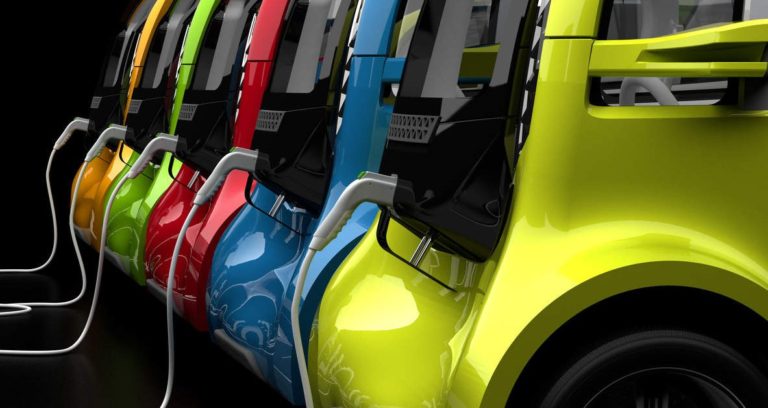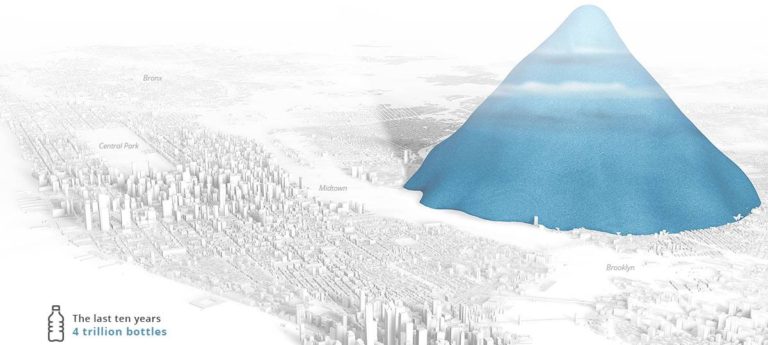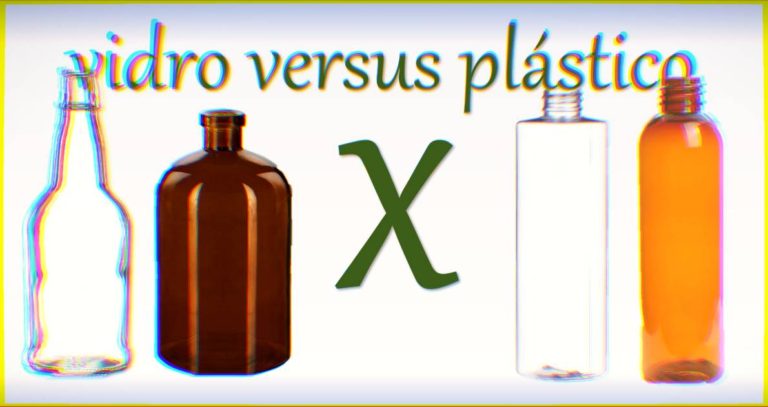In Brazil, waste production is immense. Every day, the country generates thousands of tons of trash, of which more than 35% could be recycled. In addition, another 35% of this waste could be transformed into organic fertilizer. However, instead of being properly sent for recycling or composting, a large part of this material ends up in landfills, contributing to the pollution of groundwater and perpetuating the difficult reality of thousands of families who survive by collecting recyclable materials in these places.

The current situation in Brazil is a clear example of waste and unsustainable use of natural resources. While resources are extracted from the planet to be transformed into products, these same materials end up being discarded and rendered useless, taking up space in landfills and dumps. This creates a scenario of contradictions and inefficiencies. On the one hand, recycling industries suffer from a lack of recyclable raw materials; on the other, landfills and dumps are increasingly saturated, demonstrating the urgent need for a change in disposal habits.
Selective Collection as a Solution
One of the main solutions for correctly directing recyclable waste to industries is the effective implementation of selective collection. Selective collection is essential to ensure that recyclable materials reach recycling plants in suitable conditions for reuse. However, even though the recycling process may seem simple, it depends on a collective effort to properly separate waste at its source, that is, in homes and commercial establishments.
Selective waste collection works as follows: solid waste is separated from organic waste and sanitary waste (bathroom waste) at the time of disposal. This separation is crucial so that recyclables can be sorted and processed efficiently. After being separated, the materials are sent to specialized companies that process the scrap, transforming it back into raw material.
Unfortunately, despite the importance of selective collection, Brazil still faces significant challenges in its implementation. Many city governments are still unable to offer an effective selective collection service, and the lack of information ends up harming even the most conscientious consumers, who often do not know where or how to dispose of their recyclable materials properly.
The Role of Collective Consciousness
Raising public awareness is a crucial factor for the recycling sector in Brazil to fully develop. It is necessary to create disposal habits that value the separation of recyclable materials, avoiding contamination with organic waste. When recyclable materials are mixed with other types of waste, the value of each of them is drastically reduced, making the recycling process more expensive and less efficient.
If selective collection is organized and implemented effectively throughout the country, the costs associated with recycling can be reduced, making recycled material more accessible and economically viable. However, this change will only be possible with everyone's collaboration. Adopting new disposal habits is essential for the recycling sector to demonstrate its economic and environmental advantages, contributing to a more sustainable future.
Lack of Recyclable Raw Materials
One of the main challenges faced by recycling industries in Brazil is the lack of recyclable raw materials in sufficient quantity and quality. Often, the recyclable material that reaches the industries has already been contaminated by organic waste, which makes it difficult to process. In addition, the lack of infrastructure and the absence of effective public policies for selective collection further aggravate the problem.
In a country where the potential for recycling is so great, it is frustrating to see that recycling industries are working with high levels of idleness due to the shortage of recyclable materials. This creates a vicious cycle: the lack of recyclable raw materials hinders the growth of the sector, while the lack of development of the sector prevents more materials from being recycled.
Waste and Environmental Impact
Waste of recyclable materials is not only an economic problem, but also an environmental one. When recyclables are disposed of improperly and end up in landfills or dumps, they contribute to environmental degradation. In addition to taking up space in these places, solid waste can release toxic substances that contaminate soil and water, causing irreparable damage to the environment.
Recycling, on the other hand, offers a solution to this problem, allowing materials to be reused and transformed into new products, reducing the need for extraction of natural resources and minimizing environmental impact.
The Importance of Environmental Education
For selective collection and recycling to be effective, it is essential to invest in environmental education. People need to understand the importance of separating their waste and actively participating in the recycling process. In addition, the government and companies need to encourage sustainable practices by providing clear and accessible information on how and where to carry out selective collection.
Environmental education must begin in schools and extend to the entire community, creating a culture of responsibility and care for the environment. Only through awareness and changing habits will it be possible to guarantee a more sustainable future for Brazil and the planet as a whole.
A Sustainable Future
Brazil has enormous potential to become a leader in recycling and sustainability. However, for this to happen, everyone needs to do their part. Selective collection is a fundamental step in ensuring that recyclables reach industries in suitable conditions, allowing them to be reused and transformed into new products.
Furthermore, it is essential that the population becomes aware of the importance of separating their waste and adopting responsible disposal habits. With everyone's collaboration, it is possible to build a more sustainable future, in which recycling plays a central role in preserving natural resources and protecting the environment.
Finally, it is important to remember that recycling is not just about saving money, but also about respecting the environment and future generations. By adopting sustainable practices, we are contributing to building a better world for everyone.
Check out other interesting facts about recycling clicking here.
Learn how to make art by recycling, Click here.




I have been collecting milk cartons with the intention of selling them. The fact is that I can't find anyone who wants to buy them, and at this point I can't even accept them as donations. I have contacted several companies, but so far I haven't found anyone who works with this material in São Paulo.
Claudia, see if you can find interested parties in our search area: http://setorreciclagem.com.br/reciclagem-maquinas-equipamentos/
A hug!
Requiring the population to separate their trash without an effective methodology is a huge scam... in Curitiba, for example, the city hall orders organic waste to be mixed with waste for disposal... a lot of confusion... until the union, municipalities and states orchestrate the same strategy, it will be this mess...
The advantages of proper disposal are undeniable for governments. It is hard to understand, or rather, it is. Just look at the amount of money spent on municipal waste tenders…
The problem lies in the discrimination against collectors... because the best way to recycle is with collectors on the streets collecting recyclables...
but society is prejudiced and is bothered when it sees a collector working...
I used to be a waste collector and I suffered a lot from people's prejudice, until I decided to stop... even though I was just working... and today you hardly see any more waste collectors because they removed the waste collectors and they can't collect the recyclables...
I don't know if I agree that it's the best way, given that the working conditions of the collectors are very harsh, but it's certainly very efficient.
I have already participated in attempts to bring together the work of the collectors and the city governments, but their interests are very different… You must know better than I do what I am talking about. It is a shame…
My colleague Ricardo, you can be transparent, we are not yet living under a civil dictatorship. First, the recycling cooperatives are in the hands of politicians who formed NGOs or OSCIPs and exploit the scrap collectors (slave labor) because they are not employees under the CLT but rather collaborators, they cannot earn an average of 400.00 reais per month and they work in warehouses that are falling apart, true breeders of rats and all kinds of insects, risking contracting various respiratory diseases in addition to being a breeding ground for AEDYS... It is a shame because in Italy you receive a coupon when you exchange recycled products, these for buying food etc.
Completing your post, Brazil imports 100% of naphtha resin for the manufacture of plastic and cannot get 3% of the waste for recycling, problems: bad faith of the cooperatives, logistics, as Jilson said: this is the worst way to see a human being: prejudice against their honest work, they are part of the third world where they judge based on appearances and needs, the same happens with the garbage collectors who unscrupulous people call garbage collectors. In fact, Brazil does not have the education to separate recycled materials, Brazilians do not respect the environment and investments in cooperatives support lazy politicians who take financing from the BNDES to buy luxury cars or apartments on the beach. Excuse my outburst but I speak from conviction and observation, I leave a question for my friends: HAVE ANY OF YOU EVER ENTERED A GARBAGE DOT OR SANITARY LANDFILLS AS THE LAW SAYS?
Gentlemen, my name is Roberto, I am an elementary school teacher and I was recently hired by an institution to work on some topics, including the environment; I agree with several considerations made in the comments, I believe that it is possible to change this scenario based on the strength of each person to take forward the criticality of the aspects of environmental education.